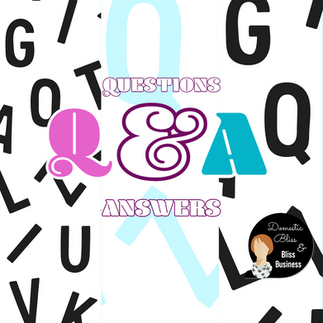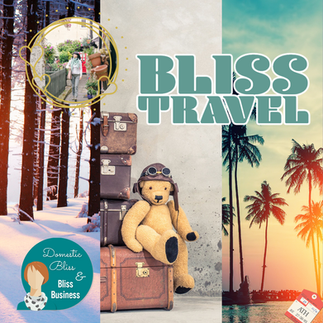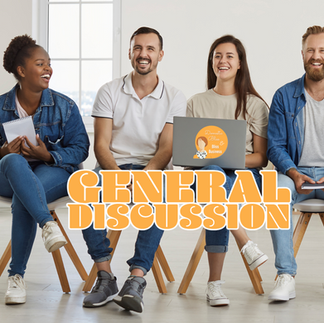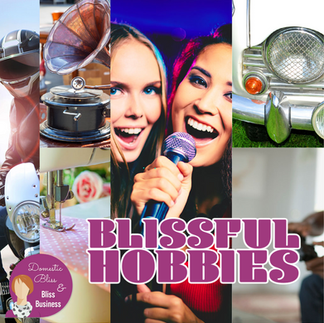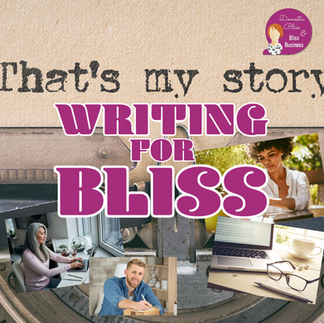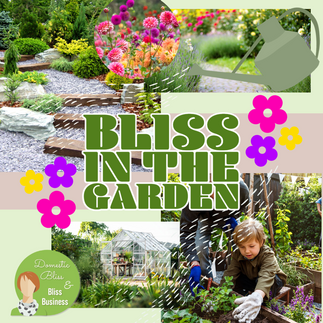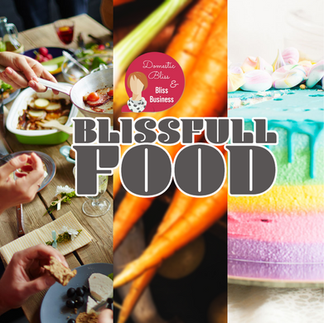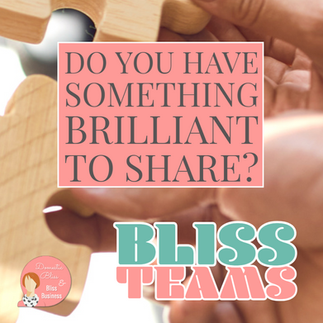The Find Bliss Wellness Wheel
- May 9, 2024
- 7 min read
Why it's important not to miss bliss | What is Wellness? | How the Wellness Wheel came to be | Completing your wheel | Getting Help
Why it's important not to miss bliss
We think often about wellness here at Find Bliss. We know that balance in every area of life, whatever that means for each of us, is important to finding more moments of bliss. If we are unhappy, or struggling in a particular area of life, it can be much more difficult to enjoy a blissful moment. Our focus is understandably on the issue, and the moment wizzes by before we even notice. It can be a triple miss because it also means that we won't be able to add that moment to our bank of happy memories, which gives us more blissful moments we can repeat when we revisit them. We also miss an opportunity to naturally boost our mood, and we need this to help us fight the difficulty. Overcoming difficulty and solving problems makes us feel stronger and more confident in how we view a situation is an important tool to us in solving any problem.
When we’ve missed one blissful moment, we are more likely to miss another, then another and another. This can cause a falling away from the things we love to do and because we need to boost our mood we seek things which give us instant gratification that often aren't good for us. If we start to rely on those things which aren’t good for us they can be addictive, meaning we can't stop when we would prefer to. This can seriously damage our quality of life and that of those around us. It's crucial for our wellbeing that we keep focusing on finding that joy in as many moments as we can to help us to improve our state of mind, our ability to function, and ultimately live our best life.
We are taught from an early age to focus on others, putting our own needs last. In the same way as when you go on an aeroplane with a small child, you are told, in the safety drill, to put on your mask first and then help your youngster to put on theirs; focusing on finding your own happiness first, will help you to help others find theirs. Helping others can make a big positive impact to our wellness and provide us with many blissful moments and memories.
What is Wellness?
Wellness has traditionally been considered to have a healthy mind and body. Coping with the expectations, challenges and changes in recent years has made life tougher for many of us. The World Health Organisation says that health is “a state of complete physical, mental, and social well-being and not merely the absence of disease or infirmity.” Alternative medicine suggests there are eight interconnected dimensions of wellness: physical, intellectual, emotional, social, spiritual, vocational, financial, and environmental. They advise that attention must be given to all dimensions, and if we neglect it will adversely affect the others. These eight dimensions don't have to be equally balanced. We should strive for a personal harmony that feels most authentic to us. We all naturally have our own priorities, approaches, and aspirations by Looking at key areas of our lifestyle we can consider how we best maintain and improve our overall wellness.
When we focus on something good or bad it tends to multiply. Some of that multiplication is because we are actively looking for it, but much of it is because we are attempting to make sense of it so that we can reduce or increase this element in our lives. Focusing on our wellness is no different.
The wellness principals we follow at Find Bliss are based on alternative medicines eight wellness dimensions. They are: Health, Finance, Purpose & Meaning, People, Home, Education, Change, and a blank space The blank space enables everyone to add in individual uniqueness and question everything we do. These principals often overlap and intertwine.
How the Wellness Wheel came to be
We've recently been introduced to donut economics. It's a business model that is being adopted across the world to help us fight environmental problems and build better communities, businesses and improve local government decision making at the same time. Areas where our actions are causing excessive damage to our planet, such as air pollution, climate change and land conversion are considered against the social foundation we all need such as better housing, food, fuel, and social justice. Bringing these two conflicting needs into the same space helps make better decisions. You can do this on a personal level too, and whilst your changes may seem small they will contribute to making our world a better place to live, which will improve your bliss and that of those around us. It's a great visual reference, easy to follow and easy to see where more work needs to be done.
I wondered if the same concept could be used to represent our wellness. We have a foundation layer - things that we need to do more of - our wellness principles, and we have things we do too much of which can cause us harm, we call these bliss stealers. So far we have identified a number of bliss stealers; these can be things like:
Overeating - steals our confidence and sometimes our health
OverSpending - too much money on things we shouldn’t
Addictions - things we can't stop doing which are damaging to us
Bad focusing - which stops us from having health perspective
Time Burglars , things we don't want to do that take up too much of our time, preventing us from doing what we would choice to do instead
Avoidance - hinders our success and immobilises our progress
Lazying - where excessive relaxation prevents us from purpose
Procrastination - Putting things off we should do, doing them at the last minute, takes up negative headspace and causes worry or guilt.
Blank space - there might be something personal to you or something we’ve missed

We placed our wellness foundation layer on the inside edge of a donut shape and our bliss stealers on the outer edge. We invited friends and colleagues to try it out and asked them not to confer with others until they had completed their chart. Its real value is not how others see us but how we see ourselves. We found it works best when you are as honest as possible and have as clear headspace as possible to complete it. My own showed me an instant road map of something I needed to change and when I shared it with a close family member they laughed, saying I’m so pleased you can see that for yourself. It was something that they’ve known about me for a long time but didn't know how to broach the subject. We also learned that our model was a wheel and not a donut. The wellness principals we originally marked out of 10 also needed a negative number and some people drew that in like a spoke on a wheel which works well.
Completing your wheel
I’d like to invite you to complete your own wheel. You can download it below. We also learned that our wheel changes through time and people find it useful to repeat the exercise regularly. How often depends on how fast change is occurring for you. Monthly or Quarterly are popular choices.
Take a look at the blank wheel shape and consider where you feel you are with the eight wellness principals towards the centre. Score each segment out of 10 using the fine grey line which indicates a five score to guide you. If you have a negative number leave that segment blank and instead mark the corresponding area below, marking out of 10 with 10 being in the very centre. You can make each segment a different colour or you could use the same colour to group things you feel are connected.
Then consider the Bliss Stealers located on the outside edge. Using the same marks out of 10 scoring system to extend the line on any area which is a difficulty for you. When you’ve finished both tasks you’ll have a map of where you need to place your focus. Knowing what you need to focus on will help you move forward towards better bliss. You can choose to make changes on your own or you can use your own support networks; family, friends, colleagues, or professionals to help you. You will also be able to see how a low score connects with other areas on your wheel and this can be used to explain how your life is impacted by positive and negative scores. Knowing what we need help with makes it easier to find the right help in finding a solution more quickly. Do join in with areas of the Find Bliss community which will help you find and maintain each area of your wheel.
Getting Help
Find Bliss breaks down the eight categories into smaller focus areas to make it easier for members to find and share. We have 30 categories, including Bliss in the Garden, Cuppa Club, Blissful Food and Bliss Supersavers. We realised recently that we have 27 different ways for members to connect including, blogs, forums, chat, video, file downloads and groups.
We also host the helpful list, the main organisations across the country who offer 24/7 crisis support and the Staffordshire Moorland Support Service Directory for help with cost of living issues.
We are moving forward with a number of local projects such as, setting up an epilepsy support group, fighting digital poverty, and bringing the bed for kids program to the Moorlands. We are always looking for volunteers to lend a hand with projects, fundraising and just sharing their own knowledge of what brings them bliss.
To quote Faith Johnson from the Staffordshire Quality Mark at this year’s Staffordshire COP - “Some need to see, some need to learn and some need to get on and do it.” Wherever you are with your journey towards a more blissful life - we’re here to help.
To quote Faith Johnson from the Staffordshire Quality Mark at this year’s Staffordshire COP - “Some need to see, some need to learn and some need to get on and do it.” Wherever you are with your journey towards a more blissful life - we’re here to help.





